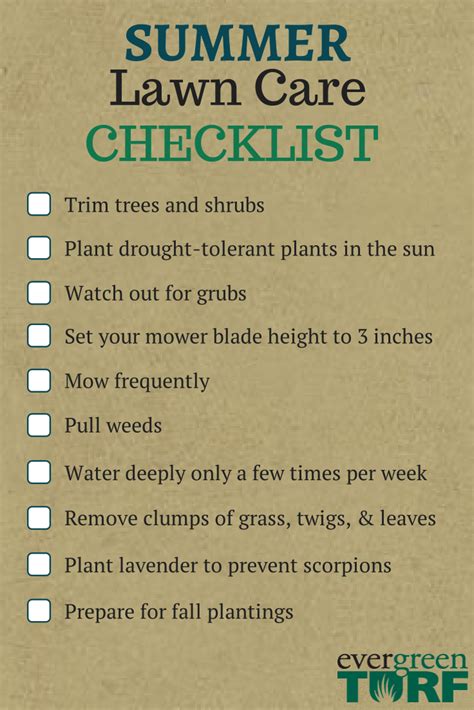Starting A Yard Maintenance Business

Starting a yard maintenance business can be a rewarding venture, offering an opportunity to work outdoors and provide essential services to homeowners and businesses. With the right approach, you can establish a successful and thriving business in this field. This comprehensive guide will delve into the steps, strategies, and considerations needed to launch and grow a yard maintenance business.
Planning and Preparation: Laying the Foundation

Before diving into the world of yard maintenance, a solid plan and adequate preparation are crucial. Here’s a detailed breakdown of the initial steps to get your business off to a strong start.
Define Your Niche and Target Market
In the yard maintenance industry, specialization can be a powerful strategy. Consider focusing on specific services like lawn mowing, landscaping, tree care, or even organic gardening. This niche approach allows you to become an expert in a particular field, offering specialized services that set you apart from competitors.
Identify your target market by conducting thorough market research. Understand the demographics, preferences, and needs of your potential customers. Are you targeting residential areas, commercial properties, or a combination of both? Understanding your target market will guide your marketing efforts and help you tailor your services to meet their specific needs.
Develop a Comprehensive Business Plan
A well-crafted business plan is the blueprint for your yard maintenance venture. It outlines your business goals, strategies, and financial projections. Here’s a breakdown of key components to include:
- Executive Summary: Provide a concise overview of your business concept, goals, and unique selling points.
- Market Analysis: Detail your research findings about the industry, competitors, and target market.
- Service Offerings: Describe the specific yard maintenance services you'll provide and their unique benefits.
- Marketing and Sales Strategy: Outline your plans for attracting and retaining customers, including advertising, networking, and referrals.
- Operations Plan: Explain how you'll manage day-to-day operations, including equipment, staff, and scheduling.
- Financial Projections: Present realistic financial estimates, including startup costs, revenue projections, and break-even analysis.
Obtain Necessary Licenses and Permits
Navigating the legal landscape is a critical aspect of starting any business. Research and obtain the required licenses and permits specific to your location and the services you’ll offer. This may include business licenses, permits for specific activities like tree trimming, and any environmental or safety certifications.
Build a Professional Network
Networking is invaluable in the business world. Connect with other professionals in the industry, including landscape architects, garden centers, and even local government agencies. These relationships can provide insights, referrals, and potential collaboration opportunities.
Establish a Legal Business Structure
Choose a legal business structure that aligns with your goals and liability concerns. Common options include sole proprietorship, partnership, limited liability company (LLC), or corporation. Each structure has tax and liability implications, so consult with an attorney or accountant for guidance.
Building Your Business: Essential Steps

With your foundation laid, it’s time to build your yard maintenance business. This section provides a detailed roadmap for the crucial steps to take as you establish and grow your venture.
Acquire the Right Equipment and Supplies
Investing in high-quality equipment is essential for efficient and effective yard maintenance. Depending on your services, you may need lawnmowers, trimmers, edgers, leaf blowers, pruning tools, and more. Research and choose equipment that suits your budget and the demands of your business. Consider renting or leasing equipment initially to keep costs down.
Additionally, stock up on essential supplies like gloves, safety gear, gardening tools, and fertilizers. Ensure you have a reliable source for these supplies to maintain a steady inventory.
Hire and Train a Reliable Team
As your business grows, you may need to expand your team. Look for employees with a passion for outdoor work and a commitment to quality. Conduct thorough interviews and background checks to ensure you hire reliable and trustworthy individuals.
Provide comprehensive training to ensure your team understands safety protocols, equipment usage, and the specific techniques required for each service. Regularly evaluate and provide feedback to maintain high standards.
Develop Efficient Operational Systems
Implementing efficient systems is crucial for the smooth operation of your yard maintenance business. Here are some key considerations:
- Job Scheduling and Routing: Develop a system for scheduling jobs efficiently, considering travel time and the specific needs of each client. Utilize routing software to optimize your team's time and fuel costs.
- Customer Relationship Management (CRM): Implement a CRM system to track customer interactions, service history, and preferences. This helps build strong relationships and ensures personalized service.
- Billing and Invoicing: Establish a clear billing process, including regular invoicing and payment collection. Consider offering various payment methods for convenience.
- Safety Protocols: Develop and document safety procedures for your team, covering equipment usage, chemical handling, and emergency protocols. Regularly review and update these protocols.
Market Your Business Strategically
Marketing is key to attracting new clients and growing your yard maintenance business. Here are some effective strategies to consider:
- Online Presence: Build a professional website that showcases your services, portfolio, and customer testimonials. Optimize your site for local SEO to ensure potential customers can find you easily. Consider using social media platforms like Instagram and Facebook to showcase your work and engage with potential clients.
- Networking: Attend industry events, join local business associations, and connect with other professionals. Word-of-mouth referrals are powerful, so aim to build a strong network of contacts.
- Advertising: Explore targeted advertising options, such as local print ads, radio spots, or digital advertising on platforms like Google Ads or Facebook Ads. Consider offering introductory discounts or promotions to attract new clients.
- Partnerships : Collaborate with complementary businesses like garden centers, landscaping supply stores, or even real estate agencies. These partnerships can provide mutual benefits and expand your reach.
Deliver Exceptional Customer Service
Providing exceptional customer service is essential for building a successful yard maintenance business. Here’s how to excel in this area:
- Communication: Maintain open and transparent communication with your clients. Respond promptly to inquiries, provide updates on job progress, and address any concerns or issues promptly.
- Timely Service: Ensure your team arrives on time and completes jobs within the agreed-upon timeframe. Consistent punctuality builds trust and reliability.
- Quality Assurance: Regularly inspect the work of your team to ensure it meets your high standards. Solicit feedback from clients and use it to continuously improve your services.
- Personalized Approach: Tailor your services to the unique needs and preferences of each client. This level of customization builds strong client relationships and loyalty.
Growing and Sustaining Your Business: Long-Term Strategies
As your yard maintenance business takes off, it’s important to focus on long-term growth and sustainability. This section provides strategies to help you achieve these goals.
Expand Your Service Offerings
Consider expanding your service offerings to meet a wider range of client needs. This could include additional landscaping services, hardscaping, seasonal services like snow removal, or even interior plant care for commercial properties.
Focus on Customer Retention
Retaining existing customers is often more cost-effective than acquiring new ones. Implement strategies to keep your clients happy and coming back for more:
- Loyalty Programs: Offer incentives for repeat business, such as discounts, rewards, or referral bonuses.
- Personalized Care: Get to know your clients and their properties. Offer tailored recommendations and solutions to meet their unique needs.
- Customer Feedback: Solicit feedback regularly and use it to improve your services. Address any concerns promptly and show your commitment to customer satisfaction.
Stay Up-to-Date with Industry Trends
The yard maintenance industry is constantly evolving, with new techniques, technologies, and trends emerging. Stay informed by attending industry conferences, workshops, and webinars. Subscribe to relevant industry publications and blogs to keep up with the latest developments.
Invest in Your Team’s Development
Your team is your greatest asset. Invest in their professional development by providing training opportunities, certifications, and workshops. Encourage continuous learning to keep your team motivated and skilled.
Explore Diversification Opportunities
Consider diversifying your business to reduce reliance on a single service or season. Explore opportunities like offering maintenance packages for commercial properties, landscaping design services, or even consulting for eco-friendly yard practices.
Develop Strong Supplier Relationships
Building strong relationships with your suppliers can provide significant benefits. Negotiate favorable terms, bulk discounts, and reliable supply chains. Consider partnering with local businesses to support each other and strengthen your local presence.
Embrace Technology for Efficiency
Technology can streamline your operations and enhance efficiency. Consider investing in software for job management, billing, and customer relationship management. Utilize GPS tracking for vehicles and equipment to optimize routes and reduce fuel costs.
Conclusion: A Thriving Yard Maintenance Business
Starting and growing a successful yard maintenance business requires careful planning, dedication, and a commitment to providing exceptional service. By following the strategies outlined in this guide, you can establish a strong foundation, build a loyal customer base, and position your business for long-term success.
Remember, the yard maintenance industry is constantly evolving, so stay adaptable and responsive to market changes. With a customer-centric approach and a passion for outdoor work, your yard maintenance business can thrive and make a positive impact in your community.
How much does it cost to start a yard maintenance business?
+The startup costs for a yard maintenance business can vary widely depending on your location, equipment needs, and business structure. On average, you can expect initial costs to range from 5,000 to 20,000. This includes expenses like equipment purchase or rental, insurance, marketing materials, and initial supplies. It’s crucial to thoroughly research and plan your budget to ensure a solid financial foundation for your business.
What qualifications do I need to start a yard maintenance business?
+While specific qualifications may vary by region, generally, there are no formal educational requirements to start a yard maintenance business. However, a strong understanding of landscaping, horticulture, and plant care is essential. Consider completing relevant courses or certifications to enhance your expertise and credibility. Additionally, ensure you obtain any necessary licenses and permits specific to your location and the services you’ll offer.
How can I stand out in a competitive market?
+To stand out in a competitive market, focus on delivering exceptional customer service and building strong client relationships. Offer specialized services or unique value propositions that set you apart from competitors. Stay updated with industry trends and embrace innovative technologies to enhance your efficiency and service quality. Finally, leverage marketing strategies to showcase your expertise and build a strong brand identity.



